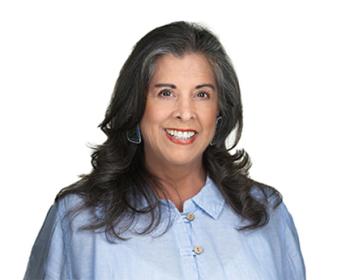Image Caption
Summary
Local Journalism Initiative Reporter
Windspeaker.com
The National Advisory Committee on Missing Children and Unmarked Burials will not participate in an internationally-led engagement process for DNA collection, which has been approved and funded by the federal government.
In a statement issued last week, the advisory committee said concerns it had previously raised with the federal government about a technical arrangement with The Hague-based organization International Commission on Missing Persons (ICMP) still hold true.
“We remain deeply concerned that such an important and sensitive process has been entrusted to a non-Indigenous organization with no prior history of working with residential school survivors,” the advisory committee stated.
The advisory committee is funded through an agreement between Crown Indigenous Relations and Northern Affairs Canada and the National Centre for Truth and Reconciliation, housed at the University of Manitoba. It is also guided by an Indigenous Circle of Survivors.
The technical arrangement with ICMP was signed in February. The international commission will hold cross-country engagement sessions with Indigenous communities to explore options for the identification and repatriation of human remains from the unmarked burial sites associated with former residential schools.
The advisory committee’s decision not to participate is neither surprising nor unwarranted, says Dr. Cynthia Wesley-Esquimaux, chair of the Governing Circle with the National Centre for Truth and Reconciliation.
After the agreement was signed, it was made clear during a “very extensive” conversation that it was not acceptable, said Wesley-Esquimaux. That conversation included representatives from the ICMP, the Governing Circle, the Survivors Circle, the advisory committee, the national centre, and staff from Crown-Indigenous Relations. It did not include Minister Marc Miller.
“There were a lot of flaws in the agreement and…these agreements don't happen quickly. There had obviously been a considerable amount of time and discussion about what this might look like,” said Wesley-Esquimaux.
The agreement seems also to cut out the Indigenous voice moving forward, as the Crown-Indigenous Relations states on its website that the work will undergo revisions and updates “jointly considered and agreed upon” by the government and ICMP.
“We're not trying to tell the government of Canada what it can and cannot do, but we are telling them…nothing about us without us. I think it is probably the most important piece that they're missing,” said Wesley-Esquimaux, a member and resident of the Chippewa of Georgina Island First Nation in Ontario.
What the government fails to recognize, she adds, is that people on reserves have master’s degrees and doctorates. They have expertise in a subject that was known to them well before the 215 burial sites were identified at Kamloops residential school in 2021.
Many of those communities have already engaged organizations, institutions and universities to partner with them.
“Nobody's asking the government to roll over but at the same time have some respect,” said Wesley-Esquimaux.
The issues surrounding DNA collection, identification and repatriation of human remains are complex, says the advisory committee in its statement, and “any process must recognize, respect and uphold Indigenous peoples’ right to self-determination and other inherent rights.”
In a statement provided to Windspeaker.com, Crown-Indigenous Relations said it does respect the position taken by the advisory committee.
“The Department also respects and supports the decision of Indigenous communities who have expressed a desire to enlist the expertise of the International Commission on Missing Persons and those Indigenous communities who will begin engaging with them,” says the statement.
Both Wesley-Esquimaux and the advisory committee assert that it is not their place to tell Indigenous communities who they can work with.
However, says Wesley-Esquimaux, considering the connections the survivors have and that “the smoke signals or the moccasin telegraph still works,” the ICMP may find it “a little more challenging” to open those conversations with Indigenous communities.
Wesley-Esqimaux questions the government’s decision to hire the ICMP because “the work is going to get done” as there are already a number of pieces in place nationally, including the national centre, the advisory committee, and special interlocuter Kimberly Murray.
Murray was appointed in June 2022 to identify needed measures and recommend a new federal legal framework to ensure the respectful and culturally-appropriate treatment and protection of unmarked graves and burial sites of children at former residential schools.
“I think what was really quite offensive to a lot of people across the country is this suggestion that we somehow needed international oversight to do the work, (which) has been going on for quite an extensive period of time,” said Wesley-Esqimaux.
She says she expects the work to move forward both with ICMP involvement and without.
ICMP’s work is to conclude with a final report to Canada that examines future strategies for repatriation and respects the local knowledge and information provided by Indigenous communities, according to the government.
Wesley-Esqimaux will be interested to see the “comparative value of that particular report based on the people that are in Canada that are doing the work themselves and the First Nation communities that are actively engaged in that.”
However, she also expects ICMP’s report to be put on a shelf by the government “like everything else is.”
She adds that the $2 million committed by the federal government to ICMP’s work would have been better committed to the work already being carried out on the ground by Indigenous communities and their partners.
Never miss a Windspeaker article. Subscribe Today to our new Windspeaker Newsletter!
Local Journalism Initiative Reporters are supported by a financial contribution made by the Government of Canada.

